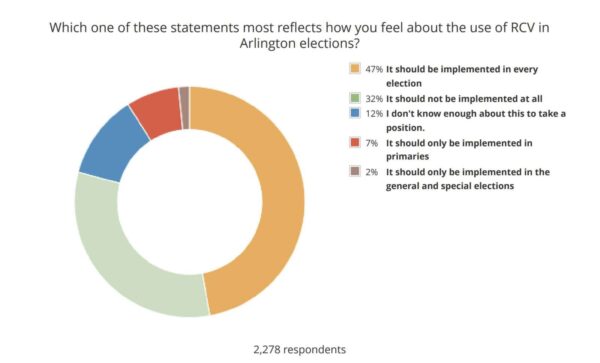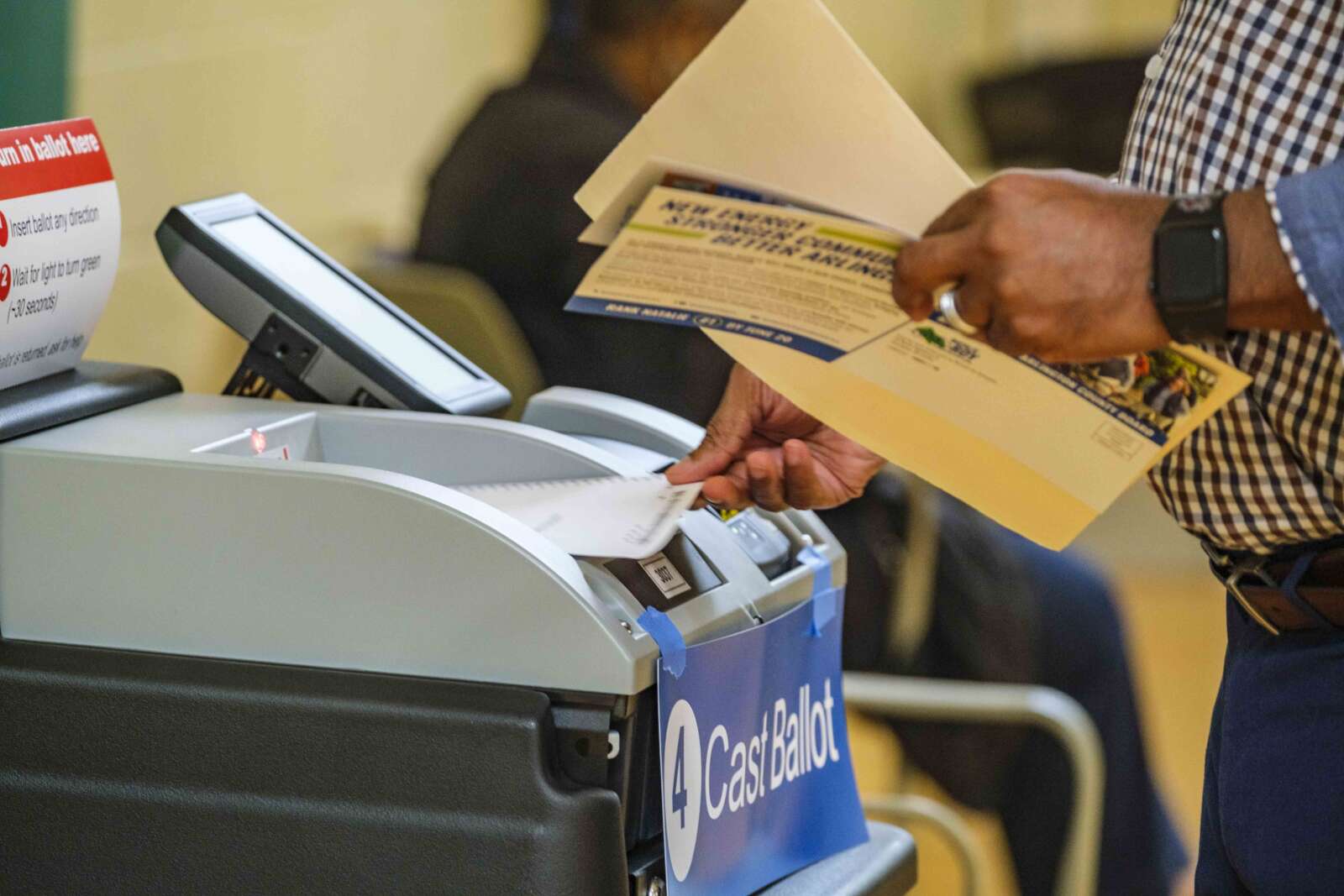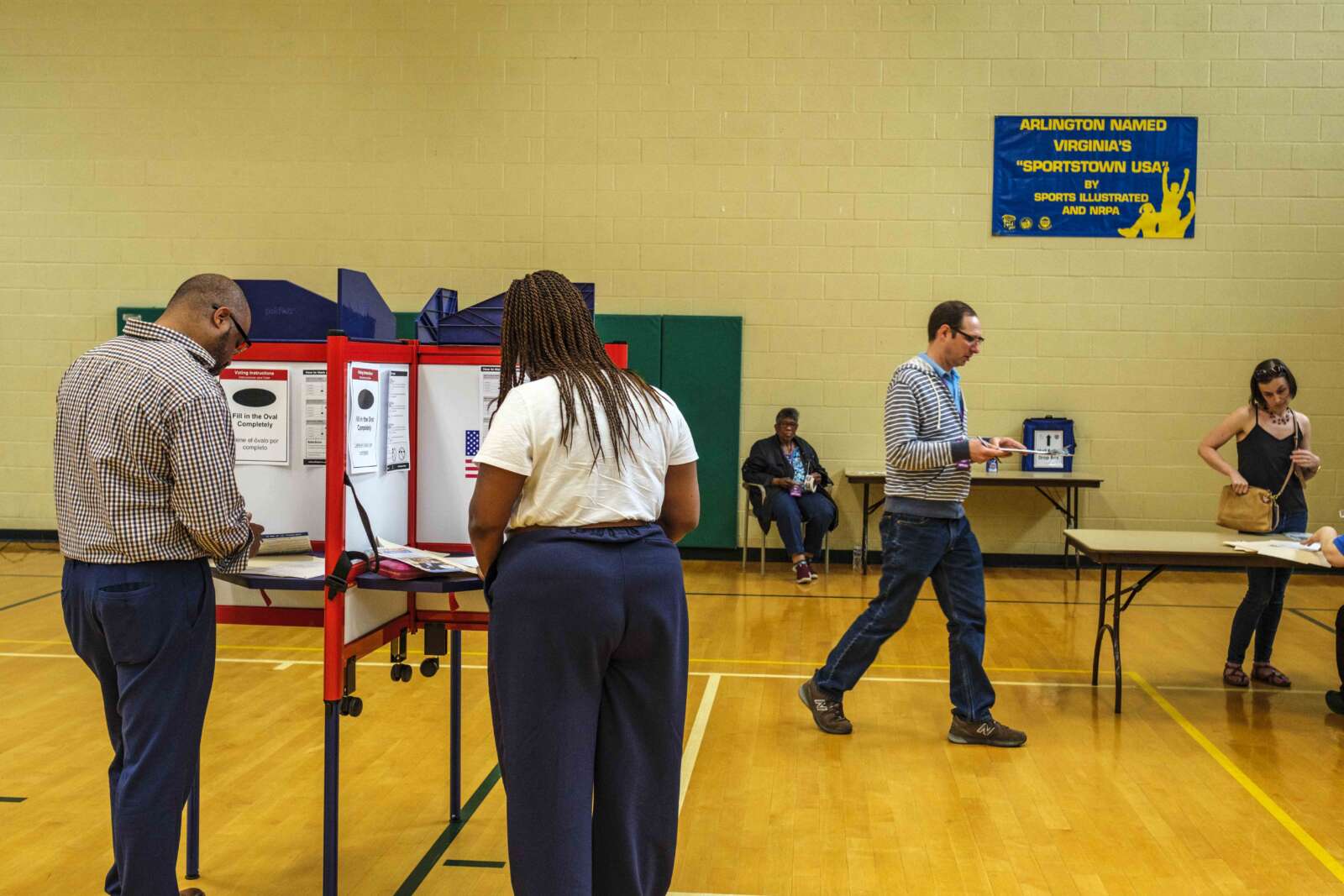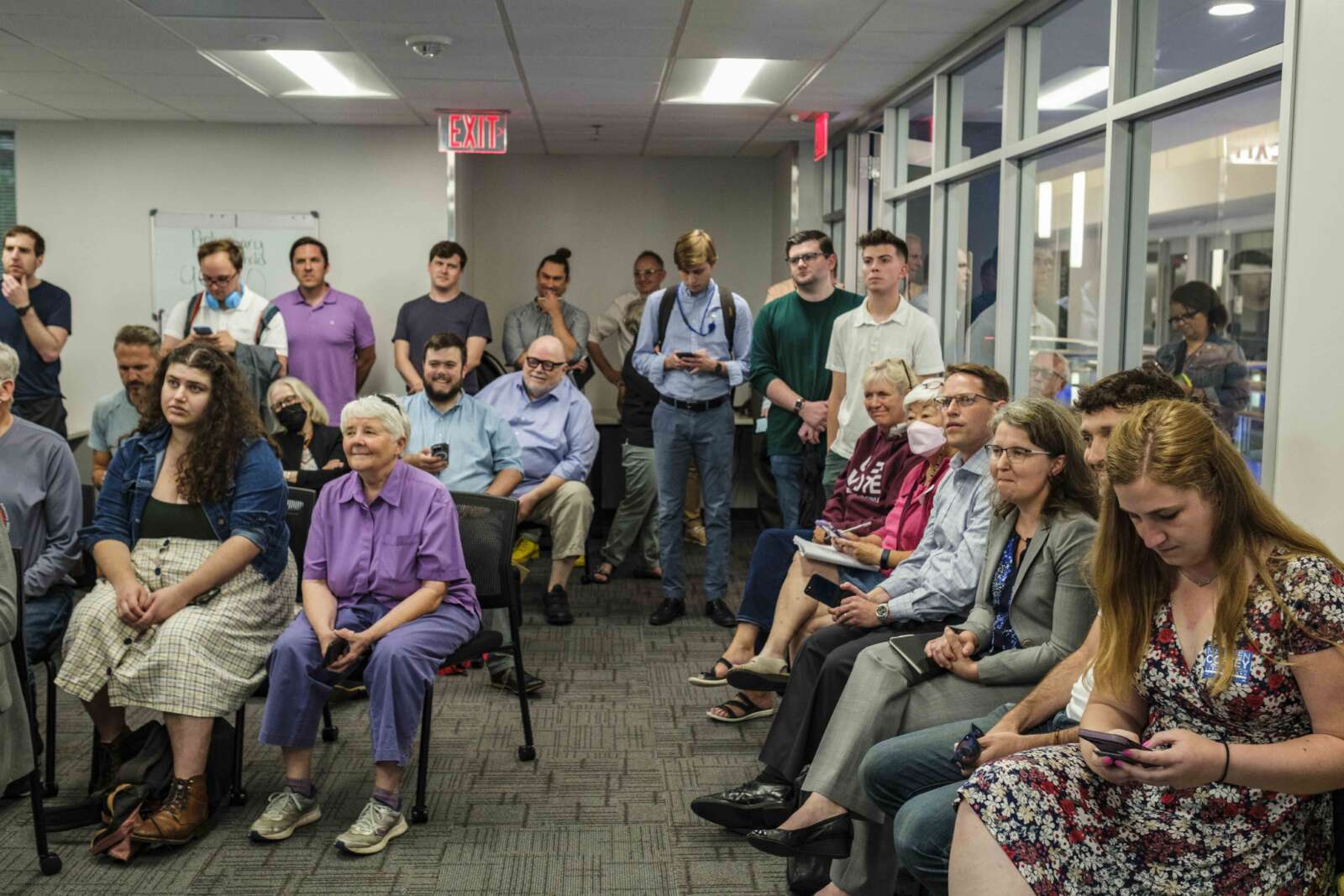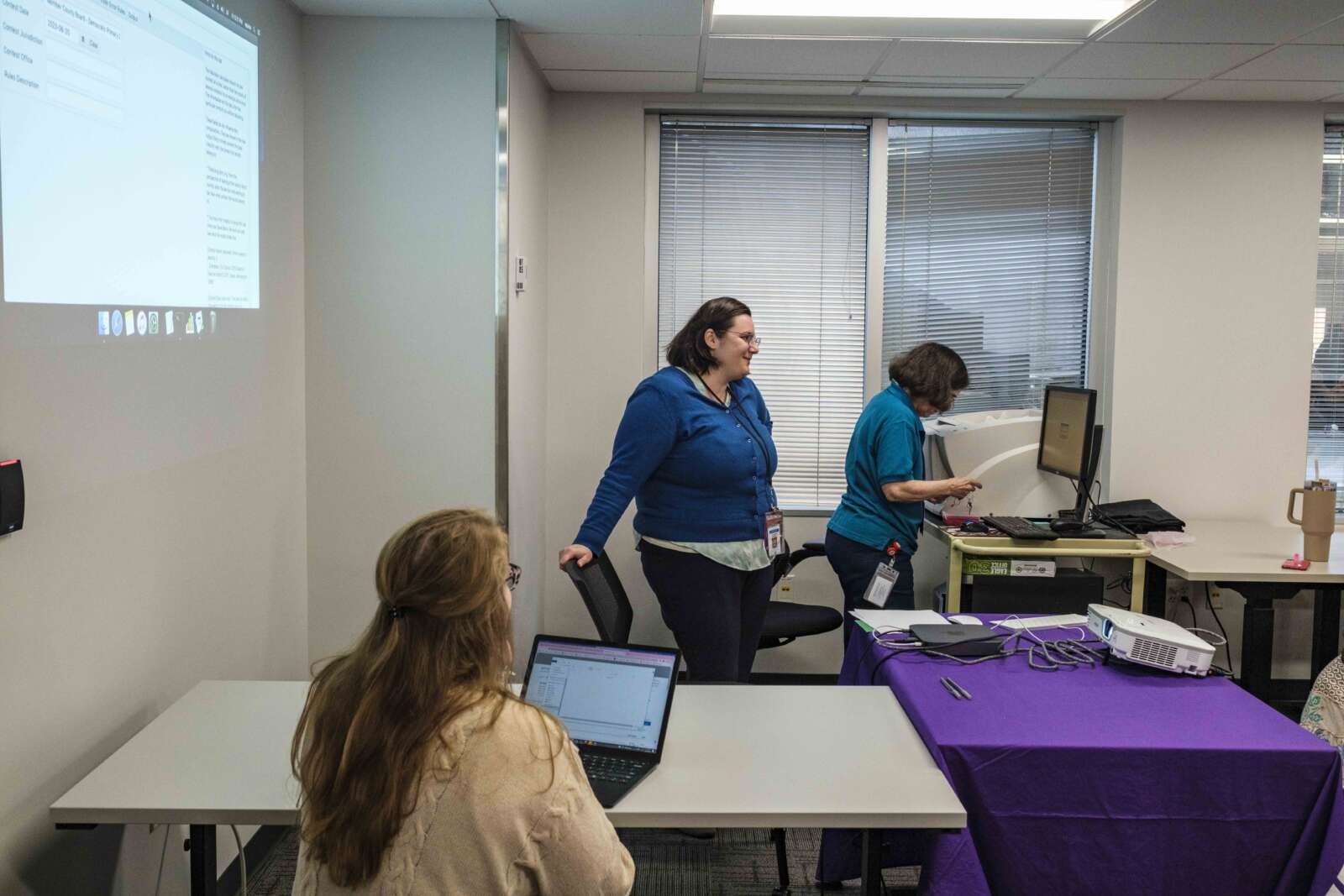(Updates at 7:25 p.m. on 7/18/23) Arlington County is not adopting ranked-choice voting for the general election this November.
When voters hit the polls or mail in their ballots this fall, they will pick two candidates just like they would in previous two-seat years. Those who get the largest plurality of votes — even if it doesn’t constitute a majority — will win a seat.
In June, voters in the Arlington County Democratic Primary used ranked-choice voting for the first time, in Arlington and in Virginia, to choose two people to run as Democrats for County Board this fall. They selected Maureen Coffey and Susan Cunningham to face Republican Juan Carlos Fierro and independent Audrey Clement.
On Saturday, the Board discussed whether to adopt it for the general election and decided against it — for now.
During the discussion, no Arlington County Board members said they were ready to move forward. They hinted at a future adoption, however, and praised the Dept. of Elections for what they said was a flawless execution of the new system.
Board members expressed concerns, however, about how votes are counted when two seats are up and the quality of outreach to voters about the new system, particularly people of color, renters and young people.
Dubbed “single transferable vote,” votes for eliminated candidates are transferred to subsequent choices and a portion of a winning candidate’s votes are transferred to subsequent choices.
“This isn’t no forever,” said Board Vice-Chair Libby Garvey. “There’s real ramifications that people haven’t totally wrestled with. We need to understand before we move forward.”
She questioned whether a different tabulation method could have yielded a different outcome as well as whether the method did not equally count everyone’s second-choice vote.
County Board Chair Christian Dorsey wanted to see voters try out the method in a primary with only one open seat. He said this typically uses a tabulation style known as “instant runoff” and may be more commonly understood.
“While I don’t really see it as proper and appropriate to continue this for the general, I do hope that everyone will agree at least later on this year — or as soon as possible — to commit to doing this again for the next primary season and the next general election, when our community education can be a lot more consistent with what they think they know RCV to be,” Dorsey said.
Meanwhile, a majority of the 15 public speakers on Saturday urged the Board to adopt the method in all future elections.
Liz White, Executive Director of UpVote Virginia, acknowledged that tabulation remains a sticking point for Arlington voters but praised how it went this June.
“This Board passed the pilot program with unanimous support, the registrar’s office received no complaints on Election Day, and the county reports that a majority of voters liked RCV and want to use it again,” she said. “This community should be very proud, and it is our hope that Arlington will build on this positive momentum, and that the members of the Board will commit to using RCV in the future.”
Arlington County Civic Federation President John Ford likewise asked for approval in a statement released before the discussion.
“Ranked choice voting provides voters with more power because they can give more information regarding their candidate choices and preferences on their ballot,” he said. “Simply put, a stronger voice for Arlington voters means a stronger Arlington. I hope that you will help give them that voice.”
But Frank Lusby, who has been championing ballot security issues for the Arlington GOP, said he has lingering concerns with the complexity of the process.
“In a close election, voters might not trust that the election was performed correctly, even if it was,” he said at the Saturday meeting.
Arlington branch of the NAACP Political Action Committee Chair Janmarie Peña said the county should not move forward until it increases outreach to diverse voters.
“If you’d like to get a true sense of the public opinion on RCV for decision making, please make a sincere effort to gather the perspectives of all residents, especially Black and [Latino] residents whose voices are all too often marginalized in this community,” she said.
For proof the county did not do that, she cited the results of a county survey after the primary. Most respondents were white, home-owning voters and older than 60.
As for the results, the majority of responses from some 2,450 participants were positive.
“When asked to rate their experience with RCV, 57% of respondents indicated ‘positive’ or ‘exceptional,’ while 29% and 13% indicated ‘negative’ and ‘fair,’ respectively,” a county report said.
There was slightly more disagreement over whether and how it should be used going forward, but a near-majority supported its adoption in every subsequent election.
